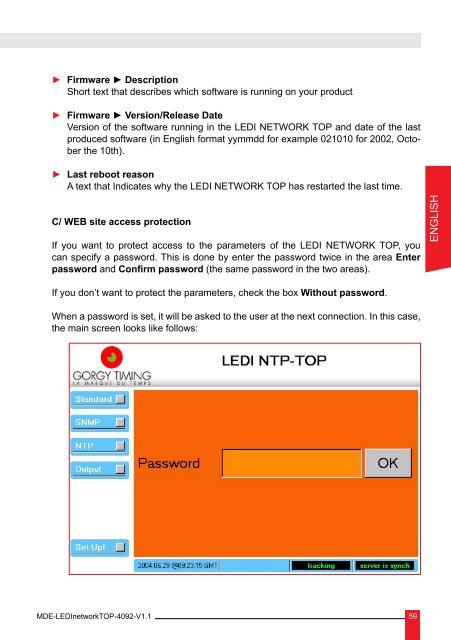This guide will explain everything you need to know about taxes on crypto trading and income. It’s estimated that about 17% of the bitcoin that will ever be in circulation has been lost—as in misplaced, keys forgotten, and so on.
NerdWallet did an in-depth examination of the storage options available on the best cryptocurrency exchanges we have reviewed. Among the factors we considered were insurance against the loss of crypto assets, the costs of using a platform, prior data security incidents and rewards offered by the different platforms. These exchanges are listed below, and the star ratings represent the provider’s overall score. Dedicating a computer to store your cryptocurrency or shelling out for a hardware wallet isn’t an option for everyone, however. Well known devices such as the Trezor and Ledger cost between $120 and $220 and, by design, add complexity and a few extra steps to every transaction.
Storing your crypto on an exchange is often regarded as the easiest way to keep it, but you can also quickly lose it to hackers. If your exchange gets attacked, you could permanently lose your crypto, even though your passwords and private keys are safe. Opening a cryptocurrency account is quick if you have the necessary details.
In its annual analysis of cryptocurrency theft, blockchain analysts at Chainalysis found that 2022 was the worst yet in terms of the total value of crypto stolen—$3.8 billion. A centralized exchange is a cryptocurrency trading platform where you buy, sell, and transfer crypto with the help of an intermediary (the exchange). These exchanges help you with crypto transactions for a fee; however, your crypto might be used by the exchange for personal uses, which is what happened with FTX.
Commercial Non-Custodial Cold Wallets
TradeStation Crypto charges 0.3% or lower on crypto trades, and unlike many other brokerages enables users to transfer crypto to a personal wallet. Many or all of the products featured here are from our partners who compensate us. This influences which products we write about and where and how the product appears on a page. NerdWallet, Inc. is an independent publisher and comparison service, not an investment advisor. Its articles, interactive tools and other content are provided to you for free, as self-help tools and for informational purposes only.
A more suitable use case would be something like a treasury fund that required multiple stakeholders to sign off on transactions. If keeping crypto on exchanges for trading is a necessity, consider only keeping what you need to trade on exchanges and nothing more. To set up a software wallet for Bitcoin, install a free software wallet client or app. For instance, download desktop software wallets from their websites and follow the on-screen instructions to install them.
Another option is to consider decentralized exchanges (DEXes), which don’t require you to give up control of your private keys. While DEXes have a long way to go before they match centralized exchanges (CEXes) in terms of things like liquidity and speed, they have come a long way in recent years. Some that you can consider include KyberSwap (swap Ethereum and ERC20 tokens), dYdX (ETH margin trading), and Synthetix (ETH derivatives).
If you are currently using a non-supported browser your experience may not be optimal, you may experience rendering issues, and you may be exposed to potential security risks. It is recommended that you upgrade to the most recent browser version. Scammers are also always coming up with new tactics, and many crypto scams don’t involve breaking into your wallet at all.
Software Updates
A seed phrase is like the answer to a security question you set up to recover your account, when you forget the password,” she said. In comparing various financial products and services, we are unable to compare every provider in the market so our rankings do not constitute a comprehensive review of a particular sector. While we do go to great lengths to ensure our ranking criteria matches the concerns of consumers, we cannot guarantee that every relevant feature of a financial product will be reviewed. We make every effort to provide accurate and up-to-date information. However, Forbes Advisor Australia cannot guarantee the accuracy, completeness or timeliness of this website.
Consistently update your mobile device or computer operating systems and software to make your bitcoins safer. Losing access to your accounts, funds, or wallets is as common as hacks. Don’t overcomplicate your security if that’s not what you’re into anyway. Strive for an appropriate balance between complexity and security. Getting a hardware wallet directly from a manufacturer is the most secure way. It is unsafe to buy it from other people, especially the ones you don’t know.
Popular options from companies like Ledger, Trezor and SafePal also let you authorize transactions from the physical device. While you need to connect your device to a phone or computer and the internet to trade crypto, the private key never gets sent over the connection. Therefore, your wallet can remain secure even if the device it’s connected to is compromised. Nowadays that generally means a physical device—which can range from a USB drive through to specifically designed hardware with custom security and accessibility features.
- Receiving Bitcoin requires public keys that can be shared with anyone.
- Though we can’t review every available financial company or offer, we strive to make comprehensive, rigorous comparisons in order to highlight the best of them.
- The wallets mentioned also allow you to exchange assets right from your wallet.
Moreover, it’s important to understand that you are printing valuable private information on a piece of paper. Certain measures should be taken to protect that piece of paper. For instance, it is recommended to keep it in a sealed plastic bag and to store it in a dry, safe place to avoid water damage and general wear and tear. Some people prefer laminating it and storing it in a safety deposit box. They are still connected to the internet, which makes them inherently less secure.
These are also relatively safe if you can disable the connectivity after using them if they don’t automatically do so. The vulnerabilities of these wallets are the software and connections used on your device or storage media, and the fact that you have to connect them to a device that has a connection to use them. You’ll find many options available, such as the Ledger Nano X or Trezor Model T. These are usually USB connection-type drives that connect to your device. When used with safety in mind, these commercial storage methods are safer than storing your keys in the wallet on your connected device. Non-custodial wallets are those you use to store your keys with no one else involved.
You can lose control of your wallet if someone simply gains access to your mobile device, especially if there is no two-factor authentication enabled. You also have to look out for people trying to trick you into sharing your seed phrase, investing in scams or inadvertently giving them access to your exchange account. When you own cryptocurrency, one of the most important things to consider is how to store it. Cryptocurrency doesn’t have the same types of protection as money in a bank account or investments made through a broker. A commercial non-custodial cold wallet is one of the safest methods for storing your keys. Considering you may be able to purchase one for about $200 to secure cryptocurrency worth far more than that, they can be worth it.
Best Security Practices to Prevent Stolen Private Keys
Paper wallets have the same advantage as hardware wallets in that they provide greater security by keeping your crypto offline. It’s also practically free to make your own, so they’re ideal if you want maximum security at the lowest possible cost. Hardware wallets are small devices that connect to your computer and store cryptocurrency.
A paper wallet is a printout of public and private keys, usually as both a string of characters and as scannable QR codes. A crypto wallet is a device or program that keeps your crypto assets, private keys, and various wallet addresses (public keys) all in the same place. Hot wallets are handy for frequent trading, while cold wallets are better for long-term holding of crypto assets.
As a rule, mobile wallets are way smaller and simpler than desktop wallets, but you can easily manage your funds using both of them. Besides, some software wallets allow you to access funds via multiple devices simultaneously, including smartphones, laptops, and even hardware wallets. The argument often made against using a custodial account is that you’re relinquishing control of the private keys to the company that controls the wallet. Additionally, you can’t use a crypto exchange account to access many parts of the crypto financial system, such as decentralized finance apps.
How to Protect Your Cryptocurrency
However, some precautions still need to be taken when creating a wallet. You must ensure that no one is watching you create your wallet or can see where you’re storing it. Most e-wallets operate on exchanges, and there have been instances of exchanges shutting down and making off with their users’ funds. Exchange wallets are also frequently targeted by hackers because they are accessible using only your email address and password. There’s a large variety of Bitcoin wallet apps for devices running on Android and iOS.
Nevertheless, these wallets are necessary for mobile phones due to their limited system resources, but this is a potential downside of having easy access to funds. A key pair is made up of a private key and a public key that corresponds to it. Sending Bitcoin requires the usage of private keys that must be kept secret. Receiving Bitcoin requires public keys that can be shared with anyone.
There are different types of secure wallet options you can go with, including crypto exchanges, cold storage wallets, paper wallets, and hot crypto wallets. If you want to access your crypto more quickly, choose either a crypto exchange or hot crypto wallet. If you’d like to focus more on security and storing cryptocurrency offline, cold storage or paper wallets are ideal options.
- You should store crypto on exchanges mostly if you make a lot of crypto transactions or trade crypto.
- A custodial wallet is managed by a third party, such as an exchange like Coinbase.
- Rather than keeping physical money, the wallet saves the cryptographic information needed to access Bitcoin addresses and send transactions.
- Setting up a multi-signature scheme is considered advanced but it is getting easier over time as more tools become accessible to a layman person.
- It is recommended that you upgrade to the most recent browser version.
Never connect to your online wallet, exchange account, or another critical security point via public WiFi. Even when you’re at a presumably safe place, make sure your WiFi access point uses strong encryption like the WPA-2 protocol. An increasingly more popular solution, multisignature wallets are an advanced way to keep your private keys securely distributed amongst different peers. It’s a top-notch security solution for businesses, family offices, decentralized organizations, and all sorts of individuals. We’ll walk you through the different types of crypto wallets and a few helpful security fundamentals.
Storing cryptocurrency in a hot wallet
A wallet app automatically uses a private key to sign the outgoing transactions and generate wallet addresses for you. Hardware wallets can be the safest option because you can keep your crypto wallet offline—as a cold wallet—when you don’t want to trade your crypto. While it’s offline, you don’t have to worry about a hacker or malware breaking into the wallet. A crypto wallet contains a private key that you use to authorize a crypto transaction.
Steps Required to Store Cryptocurrency
Although paper wallets are now phasing out, they‘re still practical for storing cryptocurrencies. A typical paper wallet contains your private keys and your address printed on it. Paper wallets are relatively safe, but if the paper gets stolen or goes missing, the thief could easily read your keys and take your crypto, or you lose your crypto forever. A paper wallet is a physical document that contains a public address for receiving Bitcoin and a private key that allows you to spend or transfer Bitcoin stored in that address.
















